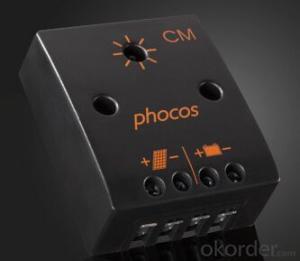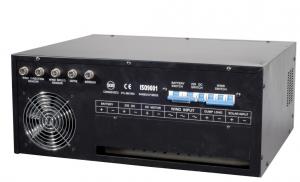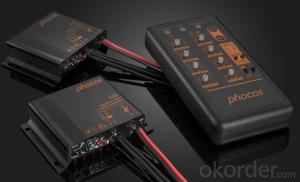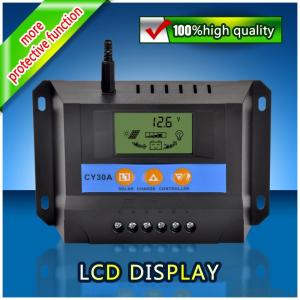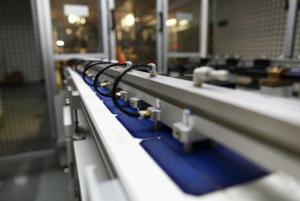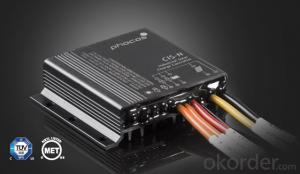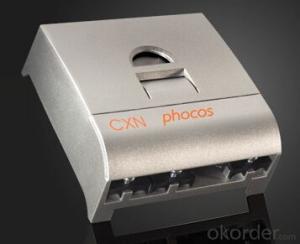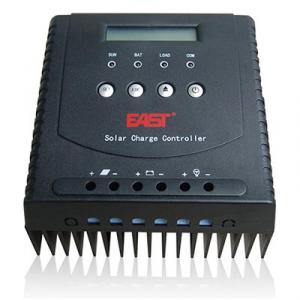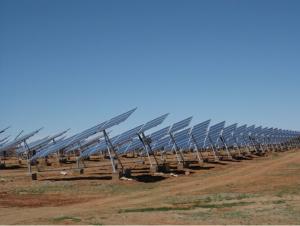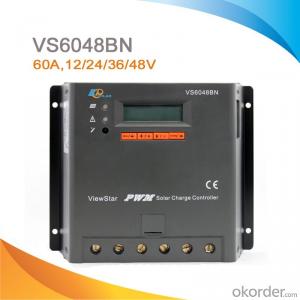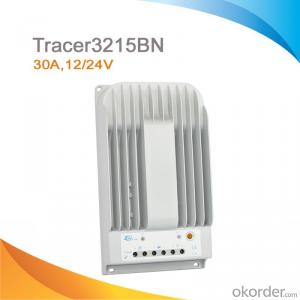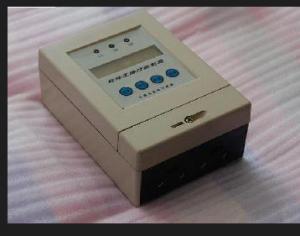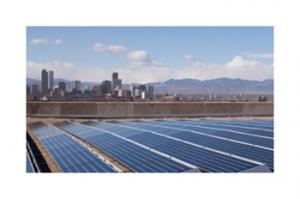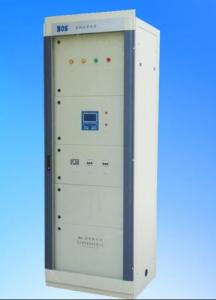Projecta Solar Controllers CM Series (4 – 10 A) Solar Charge Controllers
- Loading Port:
- China Main Port
- Payment Terms:
- TT OR LC
- Min Order Qty:
- -
- Supply Capability:
- 10000 unit/month
OKorder Service Pledge
Quality Product, Order Online Tracking, Timely Delivery
OKorder Financial Service
Credit Rating, Credit Services, Credit Purchasing
You Might Also Like
· Charging display with LED
· Large terminals (up to 16mm2)
· PWM-regulation
· Boost & float charging method
· Solid-state overvoltage protection
· Reverse polarity protection
· The CM charge controller is especially for use in small solar systems where no load disconnect is required, as in yachts, caravans, etc.
· The charging regime provides best battery treatment at reasonable cost. The electronic circuit is equipped with a microcontroller that provides high-efficiency charging technology.
- Q: Can a solar controller be used with different solar panel technologies?
- Yes, a solar controller can be used with different solar panel technologies. Solar controllers are designed to regulate and control the charging process of solar panels, regardless of the technology used. They are compatible with various types of panels, such as monocrystalline, polycrystalline, and thin-film, ensuring efficient and safe charging for different solar power systems.
- Q: Can a solar controller be used with solar-powered indoor hydroponics systems?
- Solar controllers can indeed be utilized in solar-powered indoor hydroponics systems. Their purpose is to regulate and manage the electricity flow from solar panels to connected devices or batteries. Within an indoor hydroponics system, solar controllers can effectively control the power supply from solar panels to lighting systems, water pumps, and other electrical components. Employing a solar controller guarantees efficient utilization and proper distribution of energy generated by the solar panels. This maintenance of optimal conditions ensures optimal plant growth within the hydroponics system.
- Q: Can a solar controller be used with different types of solar batteries?
- Yes, a solar controller can be used with different types of solar batteries as long as the voltage and charging parameters are compatible with the specific battery type. However, it is important to ensure that the controller is designed to support the specific chemistry and requirements of the battery to optimize its performance and lifespan.
- Q: Can a solar controller be used with solar panels that are connected to a solar air conditioning system?
- Solar panels connected to a solar air conditioning system can indeed utilize a solar controller. Acting as a regulating device, the solar controller effectively manages the flow of electricity from the solar panels to the air conditioning system. Its primary function is to optimize the energy generated by the panels, ensuring efficient operation of the system. Monitoring the electricity output, controlling battery charging (if applicable), and directing the ideal power amount to the air conditioning system are all responsibilities of the solar controller. By employing a solar controller, seamless integration of the solar panels into the air conditioning system is achieved, resulting in maximum energy utilization and decreased reliance on the grid.
- Q: Can a solar controller be used with a solar-powered marine system?
- Yes, a solar controller can be used with a solar-powered marine system. A solar controller regulates the charging and discharging of batteries connected to a solar panel system, ensuring optimal performance and preventing overcharging. This functionality is essential for maintaining and managing the power supply in a solar-powered marine system, making a solar controller a valuable component in such applications.
- Q: Can a solar controller be used with a solar-powered water purification system?
- Yes, a solar controller can be used with a solar-powered water purification system. A solar controller regulates the voltage and current from the solar panels to ensure optimal charging of the batteries. In a solar-powered water purification system, the solar controller will help manage the power flow from the solar panels to the purification unit, ensuring efficient operation and battery charging.
- Q: Can a solar controller be used with solar panels that are connected to a grid-tie inverter?
- Yes, a solar controller can be used with solar panels that are connected to a grid-tie inverter. The primary function of a solar controller is to regulate the charging of a battery bank in off-grid solar systems. However, in cases where solar panels are connected to a grid-tie inverter, a solar controller can still be beneficial. While a grid-tie inverter is primarily responsible for converting the DC power generated by solar panels into AC power for use in the electrical grid, a solar controller can help optimize the performance and efficiency of the solar panels. It can regulate the voltage and current coming from the panels, ensuring that they are operating at their peak power point, regardless of fluctuations in sunlight intensity or other external factors. By using a solar controller in conjunction with a grid-tie inverter, you can potentially maximize the energy output of your solar panels and optimize the overall performance of your solar energy system. Additionally, a solar controller can provide additional features such as overcharge protection and load control, which can help protect your batteries and appliances in the event of power surges or fluctuations. In summary, while a solar controller is not necessary for grid-tie systems, it can still be used to enhance the performance and functionality of solar panels connected to a grid-tie inverter.
- Q: Are solar controllers necessary for all solar panel installations?
- Not all solar panel installations require solar controllers, also known as charge controllers. The decision to use a solar controller depends on the specific characteristics of the solar panels and the overall system design. Solar controllers are primarily used in off-grid solar panel installations, where the panels are not connected to the electrical grid. In these setups, a solar controller is essential as it regulates the flow of electricity from the panels to the battery storage system. It ensures that the batteries are maintained at optimal levels and protected from damage by monitoring their state of charge and temperature, preventing overcharging. In contrast, grid-tied solar panel installations, where the panels are connected to the electrical grid, usually do not require solar controllers. In these setups, the electricity generated by the panels is immediately fed into the grid, eliminating the need for battery storage. The grid serves as the storage system, eliminating the need for a charge controller to manage the flow of electricity. However, it is important to note that some grid-tied systems may still incorporate a solar controller if they have additional components like batteries or if they operate in areas with an unreliable grid connection. In such cases, the solar controller would be responsible for managing the battery charging and discharging process, ensuring the system's efficiency and longevity. Ultimately, the necessity of a solar controller depends on the specific requirements and design of the solar panel installation. It is advisable to consult with a professional solar installer or engineer to determine if a solar controller is necessary for a particular system.
- Q: How does a solar controller handle temperature compensation for batteries?
- A solar controller handles temperature compensation for batteries by adjusting the charging voltage based on the temperature of the batteries. This helps to optimize the charging process and protect the batteries from damage caused by overcharging or undercharging.
- Q: How do you prevent battery sulfation with a solar controller?
- Battery sulfation occurs when lead sulfate crystals build up on the battery plates, reducing its capacity and lifespan. To prevent battery sulfation with a solar controller, it is crucial to ensure proper charging and maintenance. A solar controller regulates the charging process, preventing overcharging or undercharging of the battery. By maintaining a correct charging voltage and ensuring a complete charge cycle, the solar controller minimizes the risk of sulfation. Additionally, regular battery maintenance, such as checking electrolyte levels and cleaning terminals, helps prevent sulfation and ensures optimal performance of the battery.
Send your message to us
Projecta Solar Controllers CM Series (4 – 10 A) Solar Charge Controllers
- Loading Port:
- China Main Port
- Payment Terms:
- TT OR LC
- Min Order Qty:
- -
- Supply Capability:
- 10000 unit/month
OKorder Service Pledge
Quality Product, Order Online Tracking, Timely Delivery
OKorder Financial Service
Credit Rating, Credit Services, Credit Purchasing
Similar products
Hot products
Hot Searches
Related keywords
